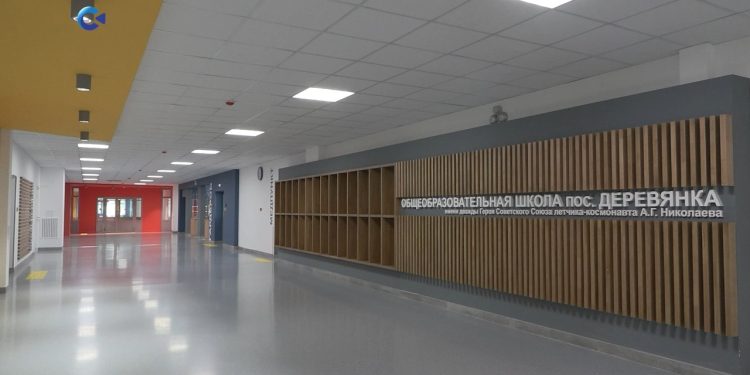#AgriculturalEducation #GreenhouseWorkshops #SustainableLearning #ModernEducation #YouthInAgriculture #EnvironmentalAwareness
Karelia’s schools embrace agricultural education with the introduction of greenhouse workshops, a step towards reviving Soviet-era practices of involving children in farming activities. This initiative aims to align with the region’s agricultural and forestry focus. The decree signed by the Republic’s Head, Arthur Parfenchikov, to establish these greenhouses received support from Tatiana Golikova, Deputy Chairperson of the Russian Federation Government. As part of her official visit to Karelia, Golikova toured a newly constructed school in the village of Derevyanka, highlighting the integration of modern education with hands-on farming experiences.
In a move to foster hands-on agricultural learning among schoolchildren, Karelia is embracing the establishment of greenhouse workshops within its educational institutions. This initiative was set in motion through a decree by Arthur Parfenchikov, the Head of the Republic of Karelia, and gained essential backing from Tatiana Golikova, Deputy Chairperson of the Russian Federation Government. The decision to reintroduce a practice reminiscent of the Soviet era’s engagement of children in farming activities was driven by the region’s strong ties to agriculture and forestry.
The core aim of this initiative is to offer students practical experience in agricultural and horticultural practices. As part of this effort, a new-generation school is under construction, funded by the national project “Education.” This state-of-the-art school will boast modern facilities, including technologically-equipped classrooms, two sports halls, and a cafeteria. The new school, situated in Derevyanka, will welcome its first cohort of 165 students on September 1st. With a capacity to accommodate 200 individuals, the institution is poised to create a conducive environment for holistic education.
Olga Guseva, the school’s director, expressed confidence in the project’s progress, noting that construction is near completion. She indicated that around 80% of the equipment installation mandated by Order No. 803 has been executed. With only a month remaining until the opening, Guseva assured that the finishing touches would be meticulously carried out to ensure the school’s readiness.
The introduction of greenhouse workshops into Karelian schools holds significant promise for the education system and the region’s agricultural sector. By providing students with practical exposure to farming, gardening, and plant cultivation, these workshops can foster a deeper understanding of agricultural practices from an early age. This engagement with the land has the potential to nurture a sense of responsibility, environmental consciousness, and an appreciation for sustainable food production.
The new-generation school’s integration of modern facilities and a focus on agricultural education reflects a forward-looking approach to learning. Beyond academic pursuits, students will have the opportunity to explore their practical interests, engage in after-school activities, and benefit from extended educational programs. This holistic approach to education can contribute to well-rounded development and equip students with valuable life skills.
In a broader context, the revival of agricultural education through greenhouse workshops aligns with global trends emphasizing the importance of sustainable practices and food security. By instilling these values in young minds, Karelia’s initiative could potentially pave the way for a future generation of environmentally conscious citizens and professionals in the agricultural sector.










